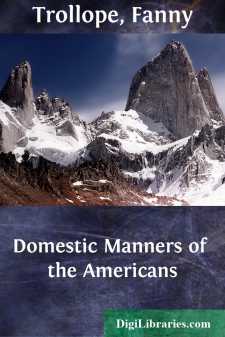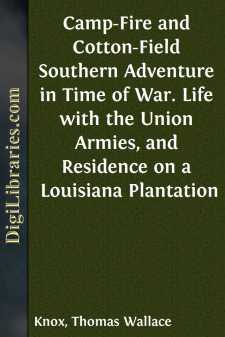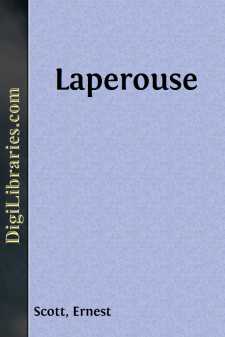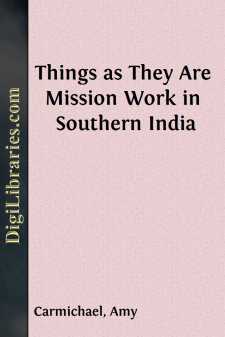History
- Africa 30
- Americas (North Central South West Indies) 50
- Ancient 68
- Asia 58
- Australia & New Zealand 8
- Canada 41
- Caribbean & West Indies 1
- Civilization 20
- Eastern Europe 12
- Europe 310
- Expeditions & Discoveries 60
- General 77
- Historical Geography 1
- Jewish 9
- Latin America 3
- Medieval 8
- Middle East 13
- Military 248
- Revolutionary 8
- Study & Teaching 5
- United States 353
- Western Europe 56
- World 13
History Books
Sort by:
For about a quarter of a century Niagara was the principal town and commercial capital of Western Canada, and for a brief period was actually the seat of government for the Upper Province. The removal of the provincial officers to York in 1796 struck the first blow at its supremacy, but its material prosperity continued until the beginning of the war with the United States when its exposed situation...
more...
by:
William Still
THE UNDERGROUND RAILROAD * * * * * SETH CONCKLIN. In the long list of names who have suffered and died in the cause of freedom, not one, perhaps, could be found whose efforts to redeem a poor family of slaves were more Christlike than Seth Concklin's, whose noble and daring spirit has been so long completely shrouded in mystery....
more...
by:
Fanny Trollope
CHAPTER 1 Entrance of the MississippiвÐâBalize On the 4th of November, 1827, I sailed from London, accompanied by my son and two daughters; and after a favourable, though somewhat tedious voyage, arrived on Christmas-day at the mouth of the Mississippi. The first indication of our approach to land was the appearance of this mighty river pouring forth its muddy mass of waters, and mingling...
more...
CHAPTER I. ANTE BELLUM. At the Rocky Mountains.--Sentiment of the People.--Firing the Southern Heart.--A Midwinter Journey across the Plains.--An Editor's Opinion.--Election in Missouri.--The North springing to Arms.--An amusing Arrest.--Off for the Field.--Final Instructions.--Niagara.--Curiosities of Banking.--Arrival at the Seat of War. I passed the summer and autumn of 1860 in the Rocky...
more...
RAOUL BLANCHARDGreatest drama of the war.The Battle of Verdun, which continued through from February 21, 1916, to the 16th of December, ranks next to the Battle of the Marne as the greatest drama of the world war. Like the Marne, it represents the checkmate of a supreme effort on the part of the Germans to end the war swiftly by a thunderstroke. It surpasses the Battle of the Marne by the length of the...
more...
by:
Various
AT this moment, when your countrymen and ours are alike facing death for the deliverance of Europe, we Englishmen of letters take the opportunity of uttering to you feelings which have been in our hearts for many years. You yourselves perhaps hardly realize what an inspiration Englishmen of the last two generations have found in your literature. Many a writer among us can still call back, from ten or...
more...
by:
Ernest Scott
Chapter I. Jean-Francois Galaup, Comte De Laperouse, was born at Albi, on August 23, 1741. His birthplace is the chief town in the Department of Tarn, lying at the centre of the fruitful province of Languedoc, in the south of France. It boasts a fine old Gothic cathedral, enriched with much noble carving and brilliant fresco painting; and its history gives it some importance in the lurid and exciting...
more...
by:
Amy Carmichael
I have felt for many years that we missionaries were far too prone to dwell on what is called the "bright side of mission work." That it has a bright side no one can question. That it has a "dark" side some do question; but I for one, after thirty years of experience, know it to be just as true as the bright side is true. I have heard Miss Carmichael's book denounced as...
more...
LAKE OF TACARIGUA. HOT SPRINGS OF MARIARA. TOWN OF NUEVA VALENCIA DEL REY. DESCENT TOWARDS THE COASTS OF PORTO CABELLO. The valleys of Aragua form a narrow basin between granitic and calcareous mountains of unequal height. On the north, they are separated by the Sierra Mariara from the sea-coast; and towards the south, the chain of Guacimo and Yusma serves them as a rampart against the heated air of...
more...
by:
James Buchanan
Fellow-Citizens of the Senate and House of Representatives: In obedience to the command of the Constitution, it has now become my duty "to give to Congress information of the state of the Union and recommend to their consideration such measures" as I judge to be "necessary and expedient." But first and above all, our thanks are due to Almighty God for the numerous benefits which He has...
more...











